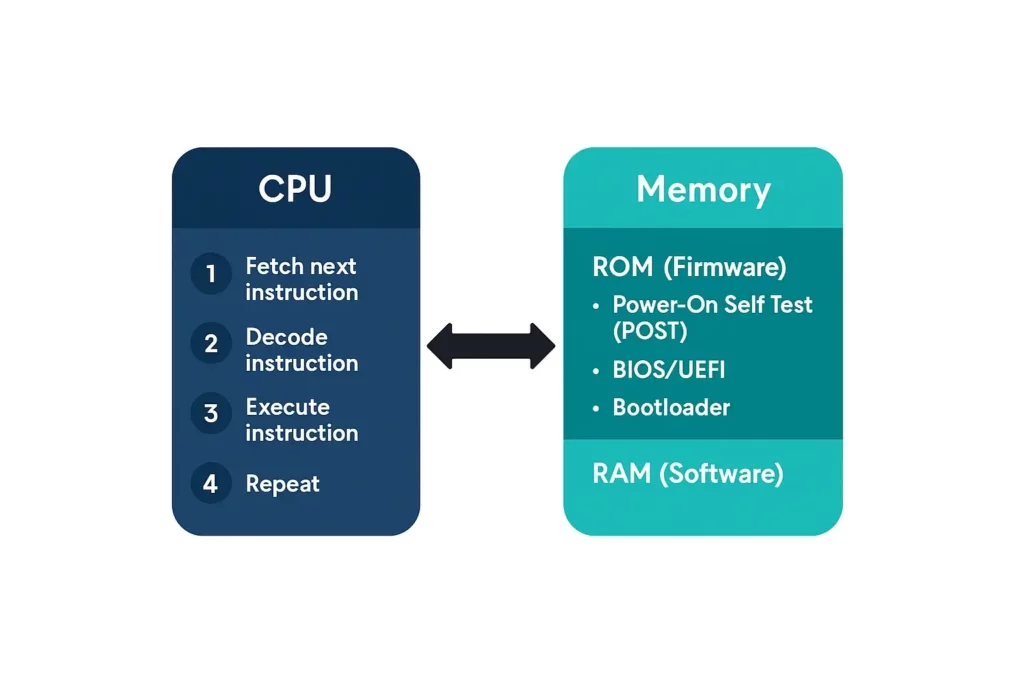Introduction to Operating System
An operating system (OS) is the core software that powers your computer, smartphone, tablet, or any other computing device. It acts as the bridge between you and the complex hardware, providing a user-friendly interface and managing essential tasks like running applications, allocating resources, and ensuring your device functions smoothly. Think of it as the conductor of a digital orchestra, orchestrating the various components to work in harmony.pen_spark

Key Functions of an Operating System
- Managing Hardware: The OS controls the computer’s hardware components, including the processor, memory,storage devices, and peripherals like printers and scanners.
- Running Applications: It provides a platform for running software applications and manages their access to hardware resources.
- Providing a User Interface: The OS presents a graphical or command-line interface, allowing you to interact with the computer and its programs.
- File Management: The OS organizes and stores files and directories on your storage devices, making it easy to find and access your data.
- Security: The OS protects your computer from unauthorized access, viruses, and other threats.
Popular Operating Systems: A Diverse Landscape
Operating systems come in various flavors, each designed for different types of devices and user needs:
- Desktop Operating Systems:
- Windows: The most widely used OS for personal computers, known for its broad software compatibility and versatility.
- macOS: Apple’s operating system exclusively for Mac computers, renowned for its user-friendly interface and design.
- Linux: An open-source OS available in numerous distributions, offering flexibility and customization.
- Mobile Operating Systems:
- Android: The dominant mobile OS globally, used on a wide range of smartphones and tablets, offering customization and a vast app ecosystem.
- iOS: Apple’s mobile OS for iPhones and iPads, known for its intuitive interface and tight integration with Apple hardware.
- Other Operating Systems:
- Unix: A powerful and versatile OS often used in servers and high-performance computing.
- Chrome OS: Google’s cloud-based operating system, designed for lightweight laptops (Chromebooks) and focused on web applications.
- Real-Time Operating Systems (RTOS): Specialized OS for systems requiring immediate responses, such as industrial control systems and medical devices.
Choosing the Right Operating System
The ideal operating system for you depends on your specific needs and preferences. Consider the following factors:
- Device Compatibility: Ensure the OS is compatible with your hardware.
- Intended Use: Think about how you’ll primarily use the device – for work, entertainment, or specialized tasks.
- User Interface: Choose a user interface that suits your comfort level and preferences.
- Software Availability: Make sure the OS supports the applications you need.
- Cost: Some operating systems are free (like Linux), while others require a license fee (like Windows).
FAQs: Introduction to Operating Systems
Q: Can I change the operating system on my computer?
A: Yes, you can usually install a different OS on your computer, as long as it’s compatible with your hardware.
Q: Do I need antivirus software for my operating system?
A: Yes, regardless of your OS, it’s essential to have reliable antivirus software installed to protect your device from malware and other threats.
Q: Are operating systems constantly updated?
A: Yes, most operating systems receive regular updates to fix bugs,improve security, and add new features.
Q: What is the most popular operating system in the world?
A: Android is currently the most popular operating system globally, primarily due to its widespread use on smartphones.
Q: Are there any operating systems specifically for gaming?
A: While Windows remains a popular choice for gaming due to its wide range of games and hardware compatibility, SteamOS (a Linux-based OS) is also designed for gaming purposes.